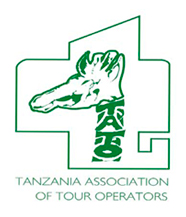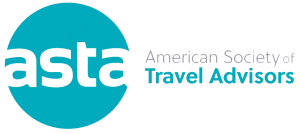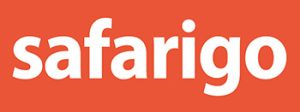Umbwe Route (7 DAY)
This route is the hardest but most spectacular and direct way to reach Uhuru Peak. It follows a forested ridge to the moorlands, and then traverses below the Southern Ice fields to reach the Barafu Route which is followed to the summit. An early start is made on the summit day to reach Stella Point, on the Crater Rim at dawn. Uhuru Peak lies a further 50 minutes along the rim.
Accommodation on the mountain is in tents which the porters will pitch for you; you will need a sleeping bag, warm clothes and walking poles. This is a steep, tough and in places slightly exposed trek within the limits of a fit individual used to walking in mountain areas. An extra day can be added to our itinerary to explore or relax along the route, (best taken at the Karanga Camp/Barafu Camp. An extra day is needed for acclimatization and exhaustion releasing
DAY 1
Arrive at the Hotel in Arusha/Moshi (B&B). Drive to the Umbwe Gate at 6,000ft (1,800m ) from where a forestry track leads through natural rain forest to a narrow and steep forested ridge and the first campsite by some rock overhangs at 9,646ft (2,940m). 5-6 hours hiking time.
DAY 2
Continue till the forest ends and the path continues along a spectacular ridge with superb views of the icy Breach Wall above and the Great Barranco gorge below. The Baranco Canyon where the campsite is located at 13000ft (3940m) provides the best scenery surrounded by Indigenous giant ground sells. 5-6 hours hiking time.
DAY 3
Scramble easily to the top of the Great Barranco and then a traverse over screes and ridges to the Karanga Valley campsite (13,123ft / 4,000m) beneath the icefalls of the Southern Glaciers. 3 hours hiking time.
DAY 4
The trail ascends a ridge to a campsite by the Barafu Camp (15, 200ft / 4,700m ), an airy location with little vegetation (3hrs). This day we eat a full hot lunch at the camp.
DAY 5
Start just after midnight for the ascent of the screes leading to Stella Point (6 hours, 19,000ft / 5,791m ). From here a further 50 mins leads to Uhuru Peak (19,340ft. / 5895m ). Descend to the Barafu Camp for a rest and brunch before continuing down to camp at Mweka Camp at 10,000ft / 3,048m. Those with energy on the summit may wish to descend to the Reutsh Crater and visit the dramatic ice pinnacles of the Eastern Ice fields. 11-14 hour total walking time.
DAY 6
A 3-4 hour descent through beautiful mountain rain forest brings you to the Mweka Park Gate
(5,600ft) / 1,707m) . Drive back to the Hotel in Moshi/Arusha (B&B).
DAY 7
Day room use, early dinner and transfer to the airport/ an extension to Wildlife safari or Zanzibar Beach holiday. Day room use at the Hotel in Arusha (breakfast – lunch)
6 days plus 2 days spent at Hotel/Lodge
What to Bring
Clothing:
- T-shirts (synthetic materials are best as cotton retains moisture)
- Waterproof thigh-length jacket (Goretex or similar)
- Gloves (waterproof warm outers + thin liners)
- Warm hat (or balaclava) that covers the ears
- Waterproof walking boots (well broken-in)
- Waterproof outer trousers with a warm mid-layer (fleece or down)
- Warm long-sleeved shirt
- Warm walking trousers (not jeans!)
- Thermal underwear
- Walking socks (several pairs)
- Walking shorts
- Trainers or soft shoes for relaxing
- Sun-hat
- Gaiters
Equipment:
- Glacier glasses (or good quality sunglasses preferably with side shields)
- Personal first aid kit & essential medications
- Wet wipes
- Warm sleeping bag (3/4-season)
- Sleeping bag liner
- Trekking poles (they are available locally)
- Small towel
- Head Torch/ Head Lamp and spare batteries
- Spare plastic bags
- Water bottle(s) (minimum 6.3 pint or 3 liters capacity)
- High factor sunscreen and chap stick
- High energy snacks, dried fruit, nuts, and sweets
- A small bottle of cordial or squash concentrate (to liven up the flat taste of boiled water) or electrolytes
Tipping
Tipping is an accepted part of life in Tanzania, and you will be expected to tip to reward the climbing crew appropriately to keep them motivated to work at their highest ability. You will be briefed on arrival as to when and how much is appropriate, however, depending on the size of your group you should budget on a personal contribution of around $100-$150 for your trek guides, cooks and porters who accompany you on the trek. This does not include the company group leader naturalist guide. Our naturalist guide receives $50 per client. He is the most highly trained person on the trek team.
Includes:
- Trained Kilimanjaro guides
- All relevant Kilimanjaro Park fees & rescue fees
- Emergency medical evacuation
- All accommodation as described in the itinerary
- Transfers as described in the itinerary
- Drinks on the hike (potable water, tea, coffee & hot chocolate)
Excludes:
- International flights
- Entry visas
- Gratuities
- Items of a personal nature
- Alterations to this itinerary (i.e. if different accommodations and services are provided then the price will most likely vary up or down)
- Airport departure taxes (unless stated)
- Laundry
- Beverages in hotels (except those in your personal safari vehicle)
- Hospital bills and international evacuation in the event of an emergency






